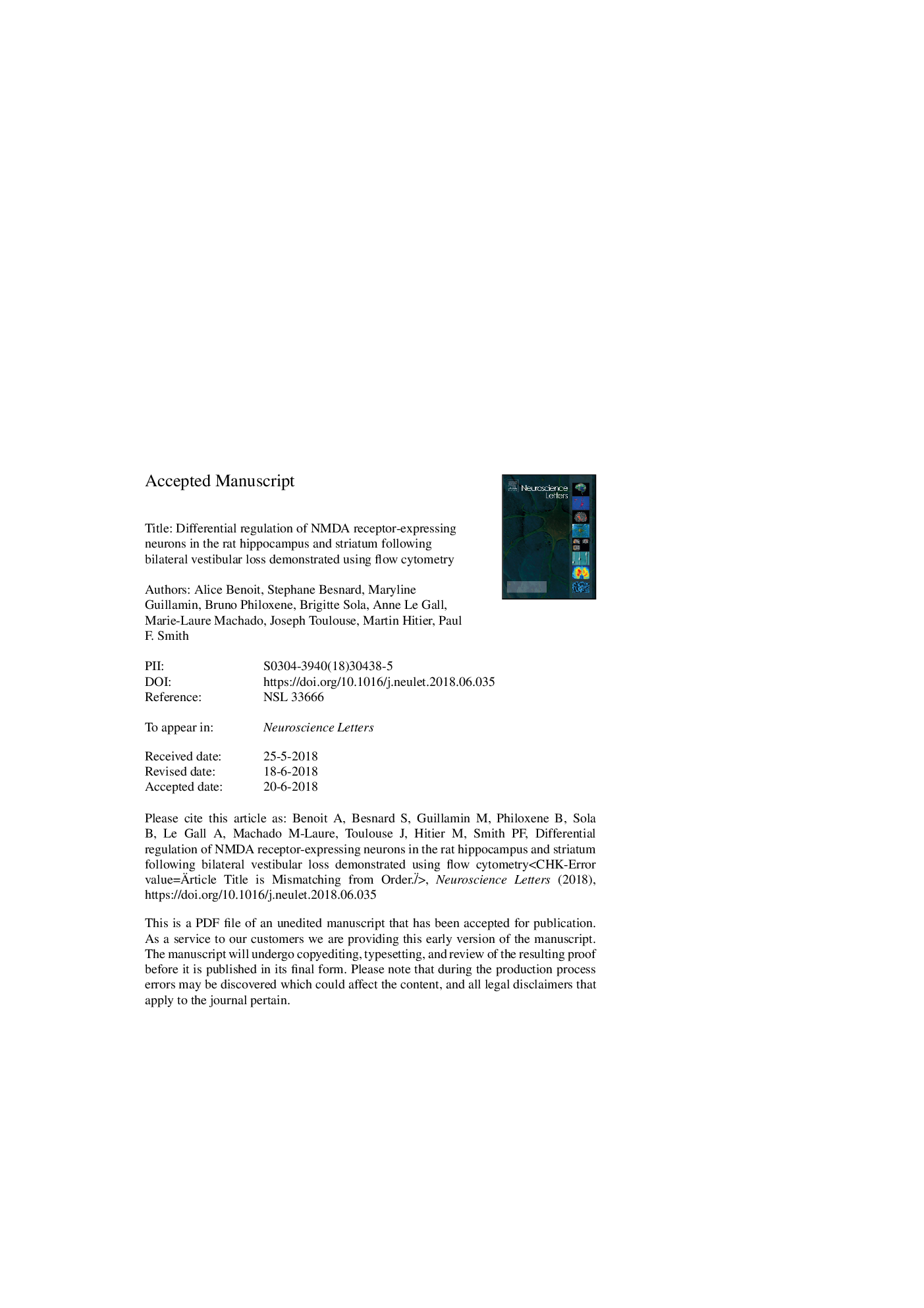| Article ID | Journal | Published Year | Pages | File Type |
|---|---|---|---|---|
| 8841364 | Neuroscience Letters | 2018 | 21 Pages |
Abstract
There is substantial evidence that loss of vestibular function impairs spatial learning and memory related to hippocampal (HPC) function, as well as increasing evidence that striatal (Str) plasticity is also implicated. Since the N-methyl-d-aspartate (NMDA) subtype of glutamate receptor is considered essential to spatial memory, previous studies have investigated whether the expression of HPC NMDA receptors changes following vestibular loss; however, the results have been contradictory. Here we used a novel flow cytometric method to quantify the number of neurons expressing NMDA receptors in the HPC and Str following bilateral vestibular loss (BVL) in rats. At 7 and 30 days post-op., there was a significant increase in the number of HPC neurons expressing NMDA receptors in the BVL animals, compared to sham controls (Pâ¯â¤â¯0.004 and Pâ¯â¤â¯0.0001, respectively). By contrast, in the Str, at 7 days there was a significant reduction in the number of neurons expressing NMDA receptors in the BVL group (Pâ¯â¤â¯0.05); however, this difference had disappeared by 30 days post-op. These results suggest that BVL causes differential changes in the number of neurons expressing NMDA receptors in the HPC and Str, which may be related to its long-term impairment of spatial memory.
Related Topics
Life Sciences
Neuroscience
Neuroscience (General)
Authors
Alice Benoit, Stephane Besnard, Maryline Guillamin, Bruno Philoxene, Brigitte Sola, Anne Le Gall, Marie-Laure Machado, Joseph Toulouse, Martin Hitier, Paul F. Smith,
